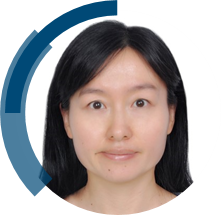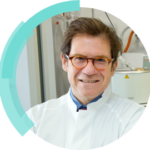We’re pleased to share that Professor Christopher J. Chang, Advisory Board member for RSC Chemical Biology, is the recipient of the 2024 Alfred Bader Award in Bioinorganic or Bioorganic Chemistry. Congratulations Chris! You can read more about Chris’ award, and Professor Michelle Chang’s, in UC Berkeley’s announcement; and find out about all of the 2024 ACS National Award winners at their web page,
Archive for the ‘Board’ Category
RSC Desktop Seminar Series – The Interface of Chemistry & Biology

We are delighted to introduce the latest series of Desktop Seminars on the Interface of Chemistry & Biology.
This exciting Series will feature talks from authors and Board Members from across the RSC’s publishing portfolio, including RSC Chemical Biology, RSC Advances, ChemComm, Chemical Science, and Molecular Omics.
Each session will include two talks from a range of international speakers highlighting their research in relation to the interface of chemistry and biology.
Save the dates and join us for these free virtual events:
RSC Desktop Seminar with ChemComm – Register Here
Join us on Wednesday 26th October 2022, at 15:00 GMT / 10:00 EST
Featuring Prof. Mingxu You, University of Massachusetts Amherst, USA, and Prof. Amanda Hargrove, Duke University, USA
RSC Desktop Seminar with RSC Chemical Biology – Register Here
Join us on Friday 11th November 2022, at 14:00 GMT / 15:00 CET
Featuring Prof. Jennifer Andexer, University of Freiburg, Germany, and Prof. Roderich Suessmuth, TU Berlin, Germany
RSC Desktop Seminar with Chemical Science – Register Here
Join us on Thursday 17th November 2022, at 15:00 GMT / 10:00 EST
Featuring Prof. Gonçalo Bernardes, University of Cambridge, UK, and Prof. Dorothea Fiedler, Research Institute for Molecular Pharmacology (FMP) and Humboldt University of Berlin, Germany
RSC Desktop Seminar with RSC Advances – Register Here
Join us on Thursday 24th November 2022, at 11:00 GMT / 16:30 IST
Featuring Prof. Surajit Ghosh, Indian Institute of Technology Jodhpur, India, and Dr. Christine Beemelmanns, Hans-Knoll Institute, Germany
More dates to be announced soon!
RSC Chemical Biology Advisory Board
New additions to the RSC Chemical Biology Advisory Board!
We are delighted to welcome Professors Lei Liu & Guifang Jia, and Dr Chudi Ndubaku to the RSC Chemical Biology Advisory Board! They join 19 other prominent researchers in the chemical biology field.
Explore the current Advisory Board line-up below. For more information on the Editorial Board, visit rsc.li/rsc-chembio.
 |
Dr Chudi Ndubaku, ORIC Pharmaceuticals, USA
Dr Ndubaku is the Vice President for Drug Discovery at ORIC Pharmaceuticals. |
 |
Professor Guifang Jia, Peking University, China
Professor Jia’s research focuses on the functions of RNA modifications in regulation of human diseases and plant development. |
 |
Professor Lei Liu, Tsinghua University, China
Research in the Lei group focuses on chemical protein synthesis and its applications to biomedical studies. |
 |
Professor Paul Dyson, EPFL, Switzerland
The research in Professor Dyson’s lab centres on organometallic chemistry at the interface with medicine, catalysis and material science. |
 |
Professor Luc Brunsveld, TU Eindhoven, Netherlands
Professor Brunsveld’s research interests are focused on chemical biology approaches studying protein-protein interactions, particularly drug discovery and supramolecular signalling systems. |
 |
Professor Peng Chen, Peking University, China
Professor Chen’s research focus is to develop novel technologies for protein manipulation in living cells, including protein-based bioorthoganol chemistry and precise protein engineering. |
 |
Professor Donald Hilvert, ETH Zurich, Switzerland
The group of Professor Hilvert are using chemical biology tools to understand and engineer proteins for various applications. |
 |
Professor May Khanna, University of Arizona, USA
The work of Professor Khanna’s lab looks to combine biochemical and biophysical techniques to target key protein-protein and protein-RNA interactions in neurodegenerative disease. |
 |
Professor Hermen Overkleeft, Leiden University, Netherlands
The research of the Overkleeft lab is characterized by the design, synthesis and application of chemical probes in glycobiology and immunology. |
 |
Professor Giulio Superti-Furga, CeMM, Austria
The Superti-Furga laboratory addresses the mechanisms by which cells respond to challenges that perturb homeostasis, and how homeostasis can subsequently be restored. |
 |
Professor Xiu-Jie Wang, Chinese Academy of Sciences, China
Professor Wang’s research interests include developing computational methods to analyze biological data, identifying new non-coding regulatory RNA genes and studying the functions of non-coding RNAs. |
 |
Professor Christopher Chang, University of California Berkeley, USA
Professor Chang’s research interests include transition metal signaling, activity-based sensing and artificial photosynthesis. |
 |
Professor Russell Cox, Leibniz University Hannover, Germany
The Cox group is interested in understanding and engineering the biosynthesis of natural products by fungi. |
 |
Professor Dorothea Fiedler, FMP Berlin, Germany
The goal of the Fiedler lab is to develop new chemical and biochemical tools that will provide a mechanistic picture of inositol phosphate signaling. |
 |
Professor Christian Hackenberger, FMP Berlin, Germany
The research projects of Professor Hackenberger’s group focus on understanding how nature generates specific biological function in complex cellular environments. |
 |
Professor Maja Köhn, University of Freiburg, Germany
Professor Köhn’s group explores integrative signaling research on phosphatase chemistry and biology. |
 |
Professor Yamuna Krishnan, University of Chicago, USA
Work in Professor Krishnan’s lab aims to build quantitative chemical maps of organelle lumens using the tools of bionanotechnology. |
 |
Professor Elizabeth Nolan, Massachusetts Institute of Technology, USA
Professor Nolan and her team investigate the chemistry and biology of small molecules, peptides, and proteins that participate in the human innate immune response and host/pathogen interaction. |
 |
Professor Jennifer Prescher, University of California Irvine, USA
The research in Professor Prescher’s lab has the aim of crafting novel chemical probes and noninvasive imaging technologies to interrogate cells in their native habitats. |
 |
Professor Christopher Schofield, University of Oxford, UK
Professor Schofield aims to define functions for all human ‘2OG oxygenases’ at biochemical, cellular, and physiological level. |
 |
Professor Pamela Silver, Harvard Medical School, USA
Professor Silver’s research interests include cell programming, therapeutic design, and environment & pathogen sensing. |
 |
Professor Kira Weissman, University of Lorraine, France
Professor Weissman is expert in multiple aspects of the biosynthesis of polyketides and related secondary metabolites. |

